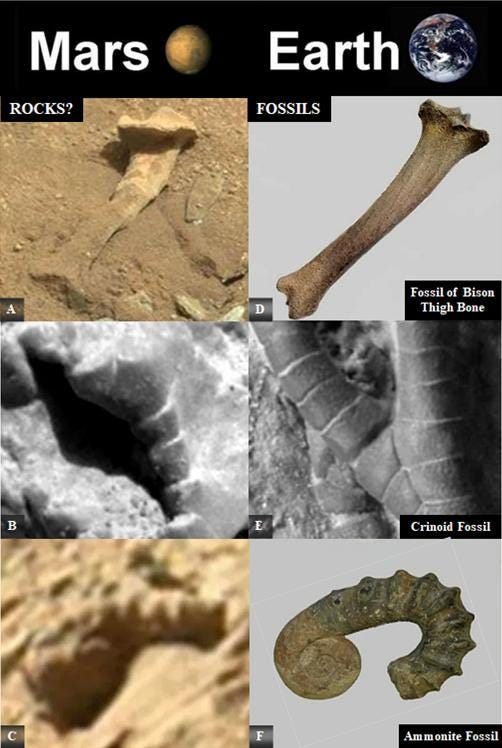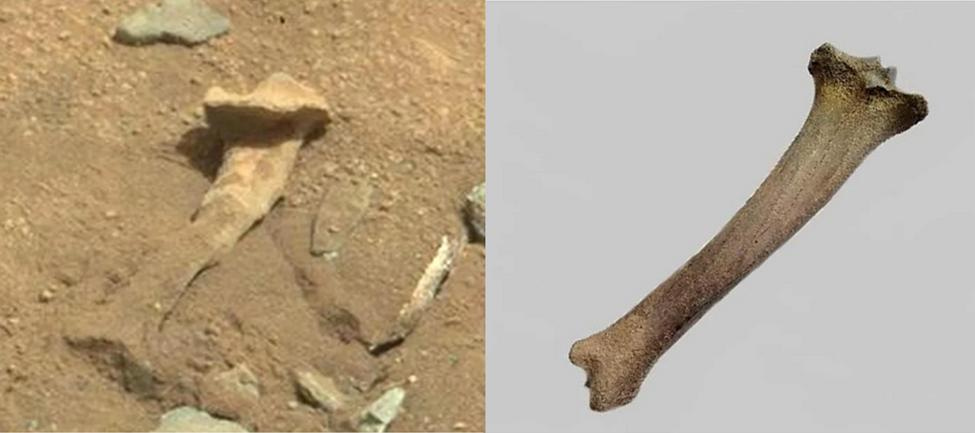Did NASA Ignore Potential Fossils Found on Mars?
"Move on, Nothing To See Here..."

With NASA avoiding a genuine search for life on Mars by not going anywhere near its liquid water, how else might they discover evidence of life on the Red Planet? Well, how about fossils! The discovery of fossils on Mars would present a fascinating window into Martian history, as well as declare once and for all, that life exists elsewhere in the universe and not just on the Earth.
Given how life on our own planet persists and multiplies with extraordinary stubbornness and tenacity, astrobiologists expect life to be theoretically abundant throughout at least our own galaxy, where the fundamental chemical elements appear everywhere. But we need the physical evidence as well as the theory, and to that end the Planet Mars stands before us as the testing ground.
NASA’s Rovers are in the prime seat to discover any fossils protruding from the barren ground, or sealed within rocks exposed by its cutting tools. But do the Martian conditions make finding fossils easier, or more difficult? The planet has been a lifeless wasteland for at least 2 billion years, as the theory goes, and so it is expected that any fossils from that time, would by now have been ground to dust by sand-blasted winds.
Yet, we might still hope that bones remain just beneath the surface, waiting their turn to be exposed by erosion. But alas, skeletons of ancient Martian animals are not to be expected, for the scientific consensus agrees that complex life did not get the chance to evolve on Mars - hence why the search for Martian life is solely focussed on primitive life, such as bacteria.
But have there been any discoveries that challenge this presumption that only fossilised remains of ancient bacteria, have any chance of ever being discovered on Mars?
Well, much may come to surprise us concerning the Red Planet.


